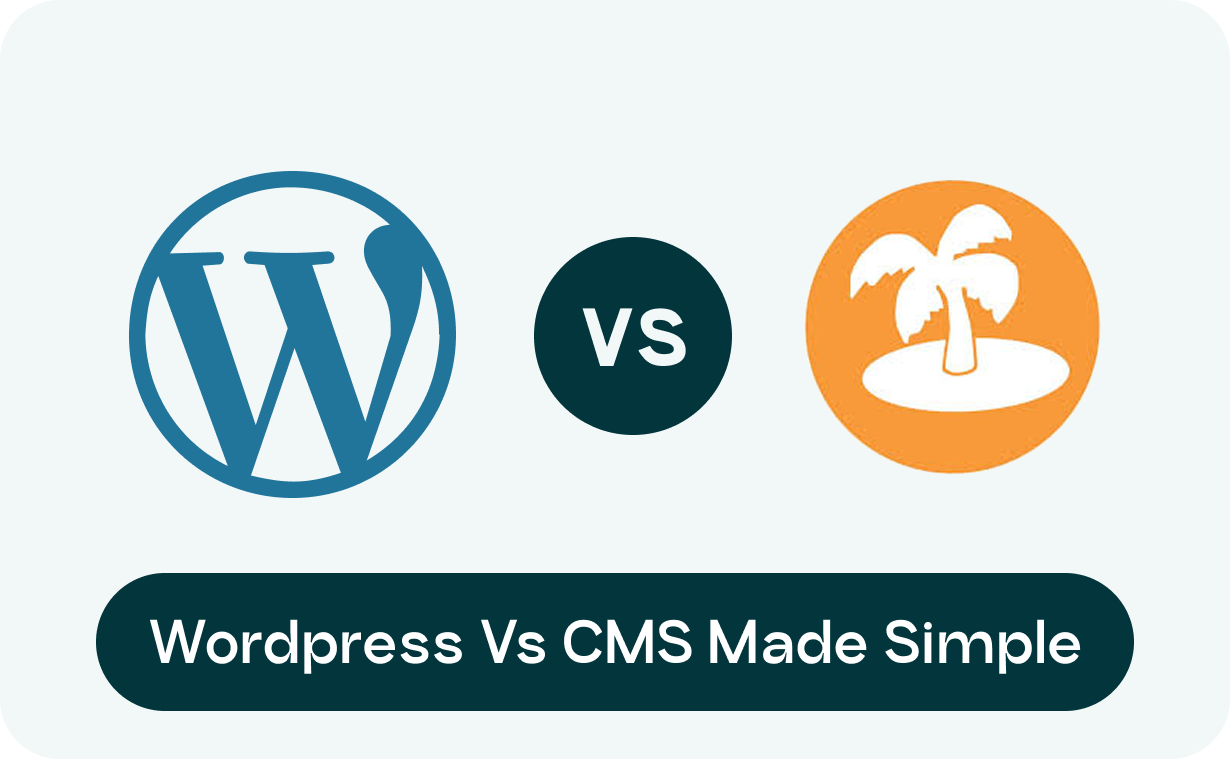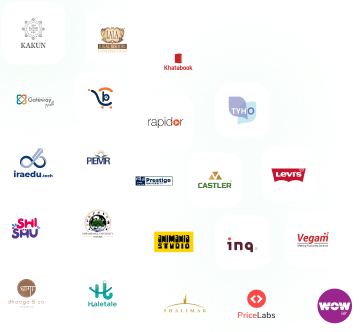WordPress vs CMS Made Simple: A Complete Comparison Guide for 2025
When it comes to building a website, choosing the right Content Management System (CMS) is crucial. Two popular names in this space are WordPress and CMS Made Simple. While WordPress has become the global leader in CMS platforms, CMS Made Simple offers a more lightweight and developer-centric alternative.
So, how do they stack up against each other? In this comprehensive guide, we’ll explore every major aspect of both platforms—features, usability, performance, SEO, scalability, security, and community support—to help you make an informed decision.
Overview of WordPress
WordPress is the most widely used CMS in the world, powering over 43% of all websites globally. Originally started as a blogging platform, WordPress has evolved into a full-fledged CMS capable of handling everything from personal blogs to complex eCommerce platforms.
Key Features:
- User-friendly dashboard
- Thousands of free and premium themes
- 60,000+ plugins
- Active global community
- SEO-friendly architecture
- Regular security updates
Overview of CMS Made Simple
CMS Made Simple is an open-source content management system that focuses on simplicity, speed, and flexibility for developers and content editors alike. It is particularly known for its clean code structure and ease of creating custom templates.
Key Features:
- Lightweight and fast
- Smarty template engine support
- Customizable content blocks
- Fine-grain permission system
- SEO-friendly URL structure
- Developer-friendly backend
WordPress vs CMS Made Simple: Feature Comparison Table
| Feature |
WordPress |
CMS Made Simple |
| Popularity |
Very high |
Low to moderate |
| Ease of Use |
Extremely user-friendly |
Moderate, geared to developers |
| Themes & Templates |
10,000+ themes available |
Limited, requires custom coding |
| Plugin Support |
60,000+ plugins |
Limited module library |
| SEO Tools |
Excellent (Yoast, RankMath) |
Basic built-in support |
| Customization |
Extensive |
Code-level customization |
| Community Support |
Huge, active community |
Small but helpful community |
| eCommerce Integration |
WooCommerce, etc. |
Requires 3rd-party modules |
| Security |
Regular updates, plugins available |
Requires manual configurations |
| Learning Curve |
Beginner-friendly |
Moderate to high for non-coders |
Target Audience Comparison
WordPress is best for:
- Beginners and non-coders
- Bloggers
- Small business owners
- eCommerce store owners
- Agencies and freelancers
CMS Made Simple is ideal for:
- Developers and designers
- Agencies that require custom websites
- Projects where speed and clean code are priorities
- Static websites or those with minimal dynamic content
Ease of Use
WordPress:
WordPress shines with its intuitive dashboard, drag-and-drop page builders (like Elementor or WPBakery), and a massive library of themes and plugins that allow you to build a professional site without touching code.
CMS Made Simple:
CMS Made Simple is minimalistic, and while it may seem cleaner, it lacks out-of-the-box tools for non-technical users. It uses the Smarty templating engine, so a bit of technical knowledge is required to fully customize your site.
Winner: WordPress (for non-developers)
WordPress:
Can become bloated if you install too many plugins or heavy themes. However, with proper optimization (caching, CDNs, optimized hosting), it can perform well.
CMS Made Simple:
Lightweight and built with performance in mind. It doesn’t come with extra bulk and loads fast by default.
Winner: CMS Made Simple (out of the box)
Customization & Flexibility
WordPress:
Offers extensive customization through themes, child themes, page builders, and plugins. Even non-developers can achieve advanced design with tools like Elementor.
CMS Made Simple:
Customization is done primarily through code and templates. You get full control, but you need coding skills.
Winner: WordPress (for ease), CMS Made Simple (for developers)
SEO Capabilities
WordPress:
With SEO plugins like Yoast SEO or Rank Math, WordPress makes it easy to optimize meta titles, descriptions, slugs, images, and more. It also supports schema markup and AMP.
CMS Made Simple:
Has built-in SEO-friendly URLs and metadata support. However, it lacks the advanced tools and automation provided by WordPress plugins.
Winner: WordPress
Security
WordPress:
Frequently targeted due to its popularity, but with regular updates and good security plugins like Wordfence or Sucuri, it can be very secure.
CMS Made Simple:
Being less popular, it’s a smaller target. However, manual configuration is often needed to achieve the same level of security as WordPress.
Winner: Tie, depends on configuration
Updates & Maintenance
WordPress: Frequent updates to core, themes, and plugins; auto-update options available.
CMS Made Simple: Less frequent updates but fewer compatibility issues.
Winner: WordPress (for convenience)
Scalability
WordPress:
Highly scalable with the right infrastructure. Used by companies like TechCrunch, BBC America, and The New Yorker.
CMS Made Simple:
Better suited for small to medium-sized sites. It can be scaled but requires custom development effort.
Winner: WordPress
Community and Support
WordPress:
Huge ecosystem with forums, YouTube tutorials, blogs, Facebook groups, and agencies.
CMS Made Simple:
Smaller community, limited third-party tutorials, but detailed official documentation.
Winner: WordPress
Cost Comparison
WordPress: Free core + potential costs for premium themes, plugins, and managed hosting.
CMS Made Simple: Free to use, but you may spend more on development time and technical setup.
Winner: Depends on your technical skills and project size.
Conclusion: Which CMS Should You Choose?
| Criteria |
Best Choice |
| For Beginners |
WordPress |
| For Developers |
CMS Made Simple |
| SEO Optimization |
WordPress |
| Custom-Coded Websites |
CMS Made Simple |
| Large Community Support |
WordPress |
| Lightweight Static Sites |
CMS Made Simple |
| eCommerce & Blogging |
WordPress |
Final Verdict:
If you are a beginner, business owner, or marketer, WordPress is your go-to CMS in 2025. Its ease of use, plugins, and scalability make it the ideal choice.
If you are a developer or agency that wants to build lightweight, custom websites without relying on plugins, then CMS Made Simple might be the better option.
FAQs: WordPress vs CMS Made Simple
1. Is CMS Made Simple easier to use than WordPress?
No, WordPress is generally easier for beginners. CMS Made Simple is more developer-friendly and requires technical skills to manage and customize.
2. Which CMS is better for SEO in 2025?
WordPress offers superior SEO tools through plugins like Yoast and Rank Math, making it a better choice for SEO-focused sites.
3. Is CMS Made Simple still actively maintained?
Yes, CMS Made Simple is actively developed and maintained by its community, though updates are less frequent compared to WordPress.
4. Can I run an eCommerce store with CMS Made Simple?
It is possible, but not ideal. WordPress offers robust eCommerce support with WooCommerce and other plugins, making it more suitable for online stores.
5. Which CMS is more secure?
Both can be secure when configured properly. WordPress requires plugins and regular updates; CMS Made Simple depends more on server-side and manual configurations.











